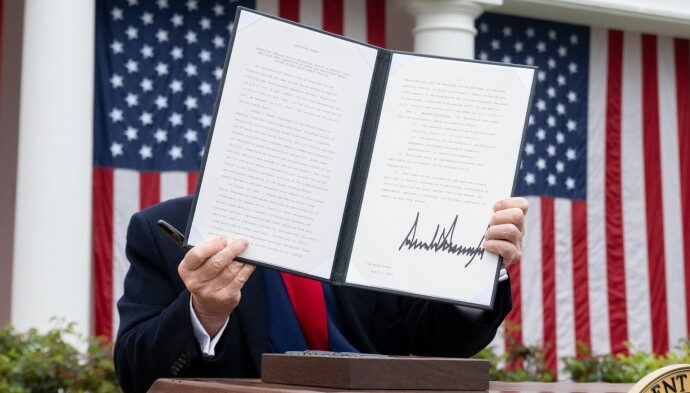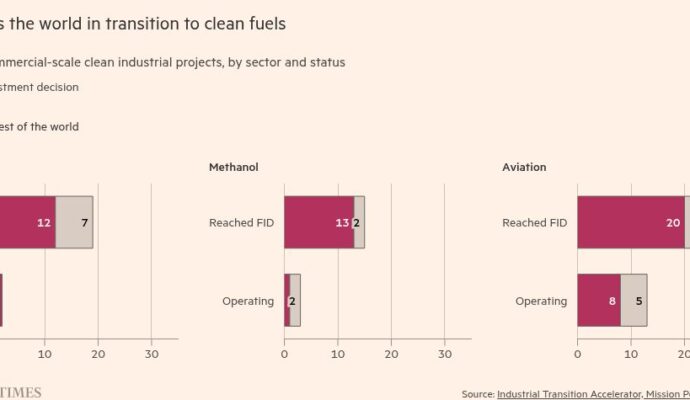Unlock the Editor’s Digest for free
Roula Khalaf, Editor of the FT, selects her favourite stories in this weekly newsletter.
The UK’s Ministry of Defence cannot determine exactly how much it has spent on a secret immigration scheme that was set up for Afghan nationals who were victims of a disastrous data breach, parliament’s spending watchdog has found.
Ministers established the Afghan Response Route (ARR) after sensitive personal details of thousands of Afghans who had assisted the UK before the Taliban retook power were leaked, putting them at risk of reprisals.
The MoD has estimated total past and future costs of resettling individuals through the scheme to be about £850mn, of which about £400mn had been spent as of this July.
However, the National Audit Office said on Wednesday that the MoD had “not provided enough evidence” to give it “confidence in its estimate of £850mn”.
The report brings renewed scrutiny of the costs of the massive data blunder, in which details of about 25,000 Afghans were accidentally disclosed by a British soldier in emails in February 2022.
A much higher figure, of £7bn, for Afghan relocations resulting from the breach was referred to in court on several occasions during “super-injunction” proceedings that the government brought against the media to keep the episode secret.
Defence secretary John Healey has insisted that the larger figure was an earlier estimate of the “total cost of all government Afghan schemes for the entire period in which they may operate”.
Sir Geoffrey Clifton-Brown MP, chair of the House of Commons public accounts committee, said “confusion still remains over the [costs], with the MoD unable to provide sufficient assurance over their numbers”.
MoD officials are expected to face questions about the costs from MPs on the influential committee next week.
Those whose details were compromised had applied online under another public scheme, the Afghan Relocations and Assistance Policy, which offered sanctuary in the UK for those who had worked with or for the UK government before the fall of Kabul in 2021.
The breach of the highly sensitive database, which also contained details of some MI6 operatives and British special forces personnel, was not discovered until August 2023, when it was mentioned in a Facebook group.
Ministers in Rishi Sunak’s Conservative government, which instituted the secret ARR scheme to bring Afghans to the UK following the leak, secured the “super-injunction” to prevent the press reporting on the episode until the High Court lifted the restrictions in July.
The NAO report said the MoD was not able to determine exactly what it had spent on ARR resettlements as it did not “separately identify the costs” in its accounting system.
The costs “were not visible in its management accounts”, but instead were included “within its total spending on Afghan resettlement activities”, the report said. “The MoD told us it did this to comply with the terms of the super-injunction.”
An estimated 7,355 are eligible for relocation under the ARR, although many have not yet arrived, partly because of factors beyond the MoD’s control, such as waiting for third-country exit visas, the NAO said.
Home Office statistics published last month, cited by the NAO, showed 3,383 people had arrived under the ARR by June 2025. The scheme has been closed to new applicants.
The potential cost of compensation claims against the MoD from data breach victims was unknown, the NAO said.
As of last month, the government had spent £2.5mn in legal costs in the super-injunction proceedings, the watchdog said.
The super-injunction — which prevented public or parliamentary scrutiny of the government’s response to, and spending on, the data breach — was secured on the basis that British intelligence assessed that the incident had put the Afghans at risk of murder, torture and intimidation by the Taliban.
However, the MoD said earlier this year that a new review of threats in Afghanistan had found the risk was less than previously thought.
The MoD said in a statement: “We are committed to honouring the moral obligation we owe to those Afghans who stood with us and risked their lives.
“Since taking the decision to support the lifting of the super-injunction brought by the previous government, we have been clear on the costs associated with relocating eligible Afghans to the UK — and are fully committed to transparency.
“The cost of all Afghan resettlement schemes, including the Afghan Response Route, has been fully funded as part of the government’s spending review.”


